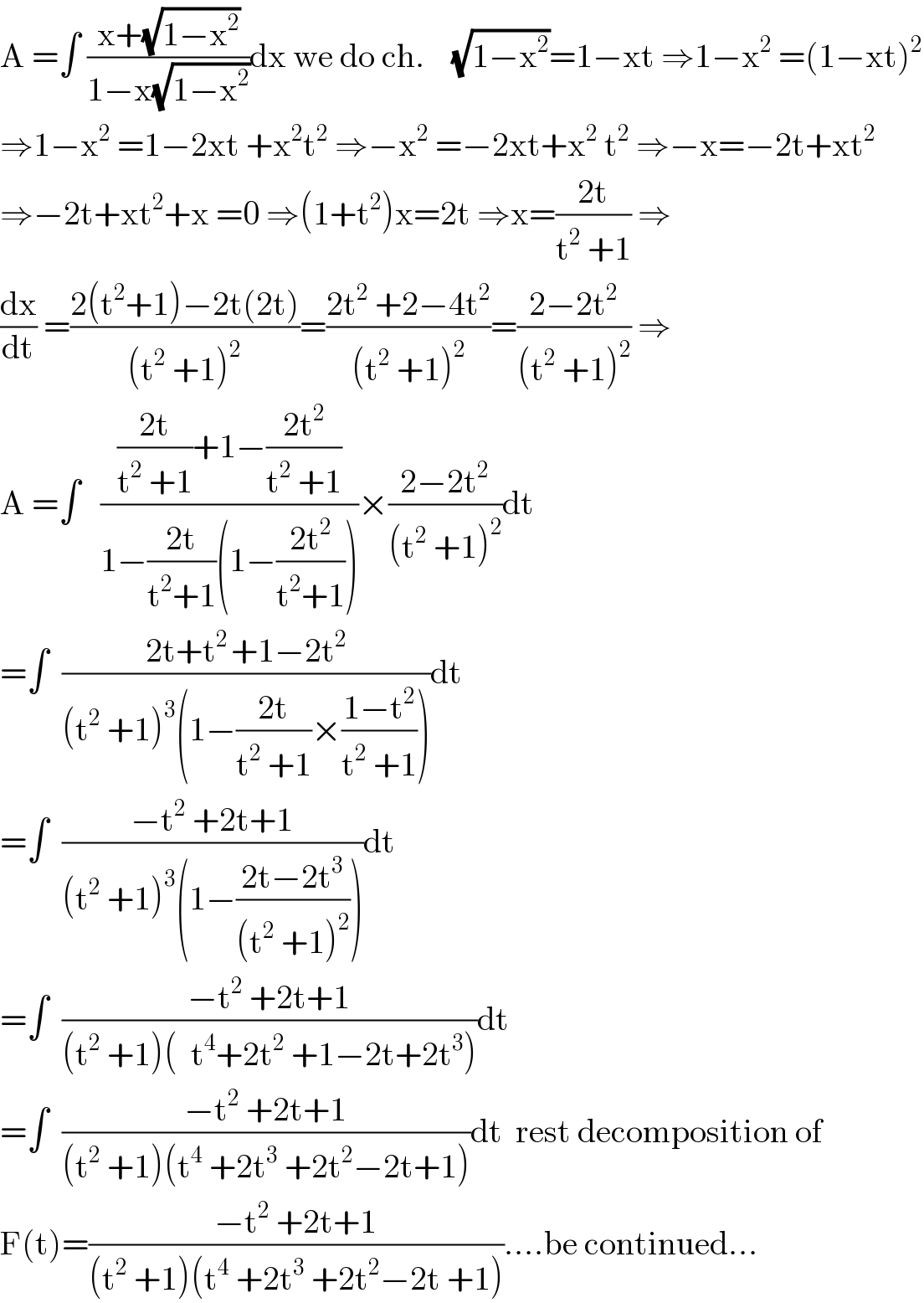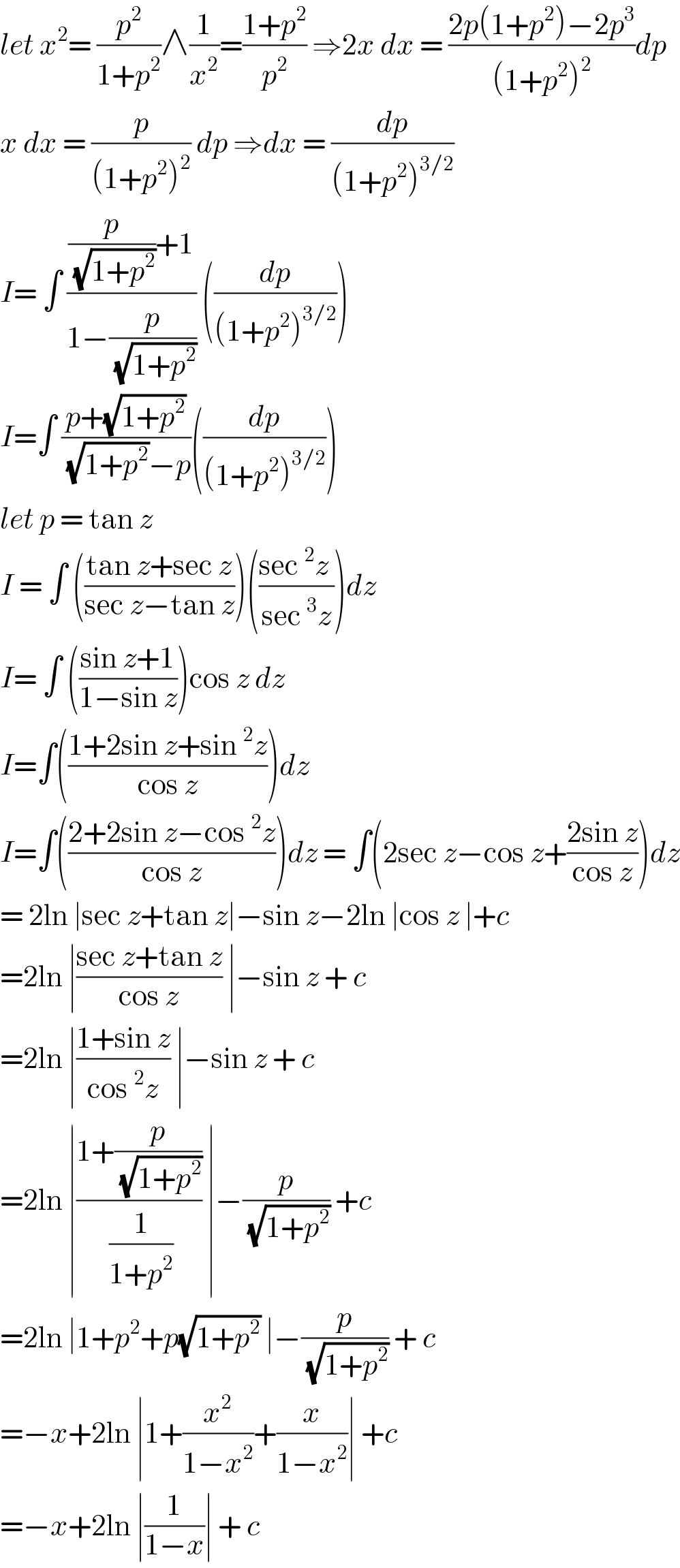
Question and Answers Forum
Question Number 125969 by nico last updated on 16/Dec/20

Commented by nico last updated on 16/Dec/20

Answered by MJS_new last updated on 16/Dec/20

Answered by mathmax by abdo last updated on 16/Dec/20

Answered by liberty last updated on 17/Dec/20

